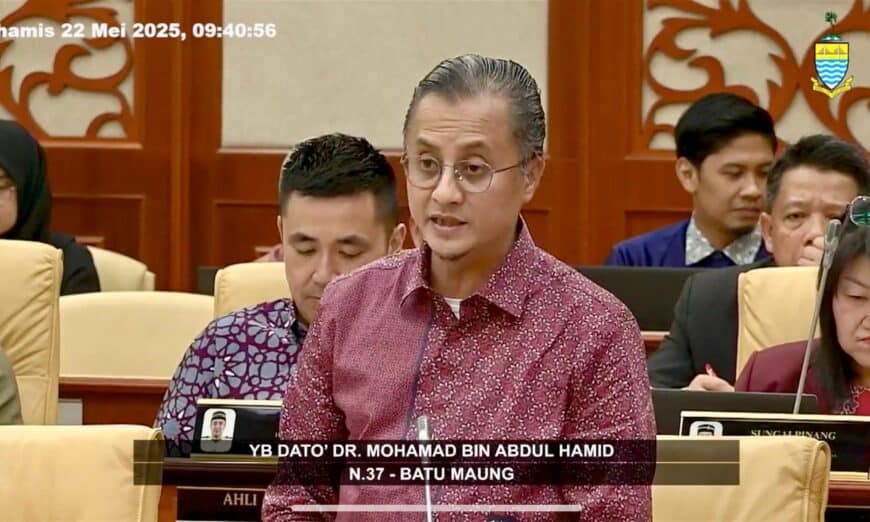PENANG’s halal industry continues to record exceptional growth, solidifying its position as a major player on the global stage.
Deputy Chief Minister I Prof Datuk Dr Mohamad Abdul Hamid shared that the state’s achievements in halal certification and related industry development are now bearing fruit — both in terms of international recognition and economic impact.
“One of the key indicators of this progress is the significant increase in companies certified under the Malaysian Halal Certification scheme (SPHM).
“In 2019, Penang recorded 1,275 SPHM holders. By 2024, that number had risen to 1,935, reflecting an increase of 660 certified entities. This growth in certification has had a profound impact on exports.
“According to the Department of Statistics Malaysia (DOSM), Penang’s halal product exports surged by 36.4% in 2024, amounting to RM20.5 billion, compared to RM11.5 billion (23.4%) in 2023.
“These figures affirm the critical role SPHM certification plays in making Malaysian halal products more competitive in international markets such as Dubai and the Middle East,” Dr Mohamad (PH-Batu Maung) told the State Legislative Assembly during his winding-up speech at the State Assembly Building in Light Street yesterday.
According to Dr Mohamad, the robust and well-established halal ecosystem in Penang has also attracted significant domestic and international investment, particularly in the food and beverage, cosmetics, pharmaceuticals, and industrial chemicals sectors.
“In November last year, the processing time for SPHM certification was reduced from 90 days to just 30 working days, further accelerating the integration of companies into the certified halal ecosystem.
“This efficiency not only enhances investor confidence but also expands opportunities for local and global firms to participate in Penang’s rapidly growing halal sector.
“With strong infrastructure, government support, and the emergence of internationally competitive companies, Penang is well on its way to becoming a leading halal hub in Southeast Asia,” he said.
Dr Mohamad also provided an update about the ongoing development of the International Islamic College of Technology (KITAB) in Bandar Cassia, Batu Kawan.
“Built on a 17.3-acre waqf (endowment) land, the project began its early earthworks this year with an allocation of RM5.7 million.
“Completion of this initial phase is expected in the second quarter of 2026, with construction of the Masjid Bandaraya Bandar Cassia to follow in the third quarter of the same year.
“This development not only strengthens the region’s educational infrastructure but also showcases the power of waqf as a sustainable and competitive instrument for community advancement, especially as Penang heads toward 2030,” he added.
Dr Mohamad also said the state government, through the Penang Islamic Religious Council (MAINPP), has made significant contributions to the digital education ecosystem.
“On April 11, 2025, a total of 8,740 tablets were distributed to 263 primary and secondary schools across the state.
“This RM6.5 million initiative aims to provide digital textbooks to students from B40 families, including those categorised as asnaf (those eligible to receive zakat or tithe), poor, and fisabilillah (those working for Islam or general good),” he concluded.
Story by Riadz Akmal

